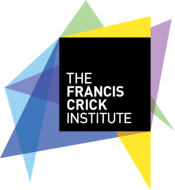News
Pronatalism is an old idea with roots in eugenics and nationalism, that is now fashionable among far-right influencers and policymakers. They talk...
This is the 10th installment in the Legacies of Eugenics series, which features essays by leading thinkers devoted to exploring...

The first application to pursue CRISPR/Cas9 genome-editing research in viable human embryos has been submitted to the UK’s fertility regulator by a team of researchers affiliated with the Francis Crick Institute in London.
“This research proposal is a troubling and provocative move,” commented Marcy Darnovsky, PhD, Executive Director of the Center for Genetics and Society. “Modifying the genes of human embryos is deeply controversial because it can be used for worthwhile research on the one hand, or to produce genetically modified human beings on the other. A global public conversation about preventing such misuses is just getting underway, and this proposal could short-circuit those deliberations.”
On September 14, the National Academies announced that the International Summit on Human Gene Editing scheduled for December will now be co-hosted by the Royal Society (UK) and the Chinese Academy of Sciences. Given that the National Academies has promised a comprehensive, inclusive, transparent, and indeed international debate of multinational, multidisciplinary perspectives, we are concerned that attempts by individual research teams to lunge forward with research in human embryos may limit the scope of discussion.
“It's illegal in the UK and dozens of other countries to use a modified embryo to initiate a pregnancy, but in others — notably the US — we don't have that legal protection,” Darnovsky added. “If scientists and the regulatory agency in the UK are serious about responsible use of powerful new gene altering technologies, they won't be rushing ahead in ways that could open the door to a world of genetically modified humans.”
If the UK Human Fertilisation & Embryology Authority were to issue this license, this would be the first approval of genome editing research on the human germline by a national regulatory body. The resulting experiments would be the second of their kind in this highly controversial area of research.
In April, scientists working out of China published research that they had created the first genetically modified human embryos—these embryos were nonviable, and the results of the CRISPR/Cas9 engineering were highly unsuccessful: producing off target mutations and mosaicism that underlined the limitations of our current understandings of genetics and genomics.
The response from the scientific community and the public after the first human embryo gene editing experiment in April was swift. Many scientists voiced support for either a pause or a moratorium on human germline modification.
####
The Center for Genetics and Society is a non-profit public affairs and policy advocacy organization working to encourage responsible uses and effective societal governance of human genetic and reproductive biotechnologies.
Contact:
Marcy Darnovsky
510-665-7760, ext 305
darnovsky[AT]geneticsandsociety[DOT]org
Hoping to avoid the potholes that recently wrecked a similarly ambitious study of children, a panel of human...
Suffolk District Attorney Daniel F. Conley backed a bill that would allow police to collect the DNA of...
Using sex selection to prevent medical complications associated with a particular sex is already permitted. Given this, why might parents...
It was a typical tabloid story with a highly atypical ending. In 2012, the actress Sofia Vergara became engaged to...
An expert advisory panel is urging Ontario to exclude the severely obese and anyone over 42 from its long-delayed plan...
Imagine discovering that your birth certificate is a lie and that your true biological father was a sperm...
Couples who used sperm donors to conceive have had their parental status called into question after “widespread incompetence” in the...



